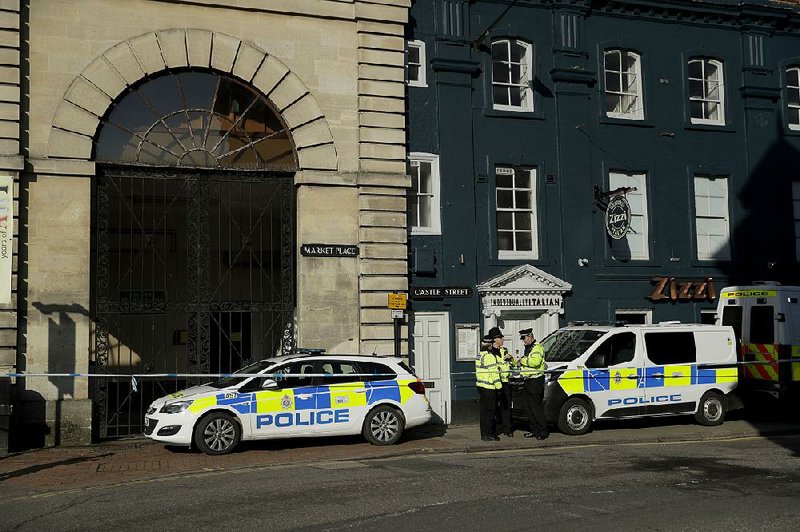LONDON -- A Russian ex-spy and his daughter fighting for their lives in an English hospital were attacked with a nerve agent in a targeted murder attempt, British police said Wednesday.
The case has further strained relations between Russia and Britain, which has said it will respond strongly if the Russian government is linked to the attack. It has overtones of a 2006 fatal attack on a former Russian spy that was blamed on the Kremlin.
In that incident, a radioactive poison was used. The choice of a nerve agent in the latest case follows the use of the banned nerve agent VX to kill the estranged half brother of North Korea's leader last year.
Sergei Skripal, 66, and his 33-year-old daughter Yulia were found unconscious on a bench in the southwestern English city of Salisbury on Sunday, triggering a police investigation led by counterterrorism detectives. Baffled police initially said the pair had come into contact with an unknown substance.
"Having established that a nerve agent is the cause of the symptoms leading us to treat this as attempted murder, I can also confirm that we believe that the two people who became unwell were targeted specifically," Metropolitan Police counterterrorism chief Mark Rowley said.
Police said the two "remain in a critical condition in intensive care after being exposed to the substance."
Police have declined to speculate on who might be behind the attack. The Russian government has denied any involvement in the attack on Skripal, a former Russian agent who had served jail time in his homeland for spying for Britain before being freed in a spy swap.
Rowley said a police officer who treated Skripal and his daughter at the scene was in serious condition. He did not provide the officer's name or specifics about his condition.
Rowley didn't say what nerve agent was suspected in the attack. Nerve agents are chemicals that disrupt the messages sent from the nerves to the body's organs. They can be administered in gas or liquid form, causing symptoms including nausea, breathlessness, paralysis and often death. Officials have not offered a prognosis for Skripal and his daughter.
Sally Davies, England's chief medical officer, said there was a low risk to the public.
Police and forensics officers continued to scour several sites in and around Salisbury on Wednesday. Police kept residents away from an Italian restaurant and a pub in the city and cordoned off part of a business park about 9 miles away, near the ancient stone monument of Stonehenge. Detectives appealed for information from anyone who visited either the Zizzi restaurant or the Bishop's Mill pub in Salisbury on Sunday.
Home Secretary Amber Rudd held a meeting of the government's emergency committee, known as Cobra, to discuss the investigation.
"We need to keep a cool head and make sure we collect all the evidence we can," Rudd said. "And then we need to decide what action to take."
Moscow officials, angered by allegations of Russian state involvement, accused Britain of using the case to fuel an "anti-Russian campaign" and further damage ties with Britain.
"What happened to Skripal has been immediately used to further incite an anti-Russian campaign in Western media," said Russian Foreign Ministry spokesman Maria Zakharova.
Information for this article was contributed by Gregory Katz of The Associated Press.
A Section on 03/08/2018
